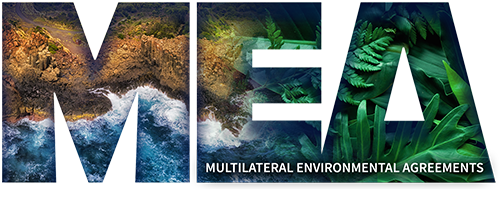There are a number of ways in which everyone can participate in the IPBES process:
Assessment Reviews
IPBES performs regular and timely assessments of knowledge on biodiversity and ecosystem services and their interlinkages, which include comprehensive thematic, global and regional assessments. To date, 11 IPBES assessments have been completed.
The 2030 work programme currently includes the following assessments:
- Nexus assessment: A thematic assessment of the interlinkages among biodiversity, water, food and health in the context of climate change.
- Transformative change assessment: A thematic assessment of the underlying causes of biodiversity loss and the determinants of transformative change and options for achieving the 2050 Vision for Biodiversity
- Business and biodiversity assessment: A methodological assessment of the impact and dependence of business on biodiversity and nature’s contributions to people
- Monitoring assessment: A methodological assessment on monitoring biodiversity and nature’s contributions to people
- Second global assessment: The second global assessment of biodiversity and ecosystem services.
IPBES periodically requests feedback from governments, NGOs, indigenous peoples, and civil society on a whole to improve the assessments currently being written. To participate in the review process, follow the instructions provided in the relevant notifications, the link for which you can find here. Additionally, you can read more on the completed and upcoming assessments here.
Current requests for external reviews of assessments
| Assessment/Requested Inputs | Deadline |
| None | None |
Using Assessments
Assessments can be used in guiding and implementing policies, developing and executing projects, scientific research, guiding business practices, and promoting education and awareness, among others.
Assessments available to download include the following:
- Assessment Report on Pollinators, Pollination and Food Production
- Scenarios and Models Assessment
- Regional/Subregional Assessments on Biodiversity and Ecosystem Services
- Assessment Report on Land Degradation and Restoration
- Global Assessment Report on Biodiversity and Ecosystem Services
- Methodological Assessment Regarding the Diverse Conceptualization of Multiple Values of Nature and its Benefits, including Biodiversity and Ecosystem Functions and Services
- Assessment Report on the Sustainable Use of Wild Species
- Thematic Assessment Report on Invasive Alien Species and Their Control
If you would like to share examples of the use of IPBES outputs in decision-making or science, have a look at TRACK, the IPBES Impact Tracking Database.
Participate in Webinars
| Webinar | Date | Time (Trinidad and Tobago) |
| Online dialogue on the nomination of experts and fellows for the second global assessment | 12th March 2025 | 8 a.m. – 10 a.m. |
Getting Your NGO Involved
Organisations should notify the secretariat of their wish to be represented at sessions of the Plenary through the registration of the upcoming IPBES Plenary. The Bureau will then review the list of those who expressed their wish to be represented at the session of the Plenary as observers, make recommendations on the admission of new observers, and communicate those recommendations to members of the Platform at least eight weeks before the opening of the Plenary. Have a look here for more information on this process.
Be Nominated to Serve as an Expert or Fellow, or Participate in Capacity Building Opportunities
Experts
The group of experts that will prepare the various assessments is selected by the Multidisciplinary Expert Panel of IPBES, and is comprised of experts and practitioners with outstanding expertise related to the relevant subject matter. Experts and practitioners come from a diversity of backgrounds, including from academia and the private sector, and bring to the assessment process a diversity of relevant disciplines, expertise and domains.
Fellows
The IPBES fellowship programme, which is part of a larger capacity-building portfolio of activities, targets early-career individuals who wish to gain experience by participating in the work of IPBES. Selected fellows will participate in the preparation of the chapter of the assessment for which they are selected, and their contribution acknowledged as part of the citation for that chapter. Fellows will attend author meetings and receive training to gain an in-depth understanding of the IPBES assessment processes and the science-policy interface. Fellows will also be paired up with a mentor for the assessment period.
How to Become an Expert or Fellow
Current calls for the nomination of persons interested in serving as experts or fellows for specific assessments are highlighted in the table below. If you are interested in being nominated, please email Dr. Lena Dempewolf at lena.dempewolf@planning.gov.tt to initiate the process. Details on the various assessments can be found by clicking on the Assessment Title of the assessment of interest in the table below.
| Assessment Title | Expert/Fellow | Deadline for the Completion of the IPBES Application Form | Internal Deadline for Submission of Documents to the Ministry of Planning and Development for Nomination |
| Second Global Assessment of Biodiversity and Ecosystem Services | Fellow | 28th March 2025 | 10th March 2025 |
| Second Global Assessment of Biodiversity and Ecosystem Services | Expert | 28th March 2025 | 10th March 2025 |
